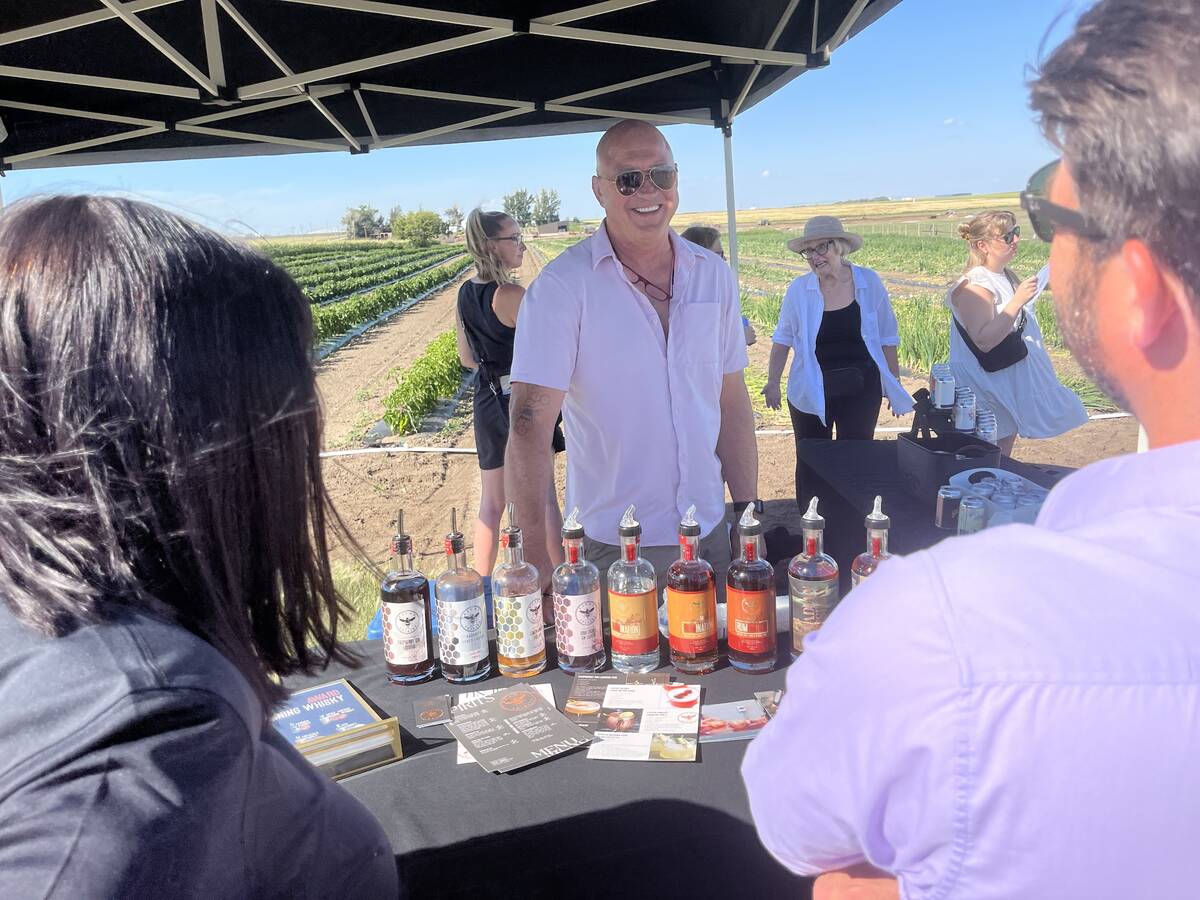Stigma attached | Couples forgoing ‘bundle of joy’ considered selfish
Co-workers call her “baby-hater,” said one woman in Gillian Ayers’ study. Another worried that her photography business would suffer if her child-free status became known.
Still other women who have chosen to remain childless have found themselves pitied, assessed as less feminine or accused of selfishness.
Yet statistics show more women are choosing that path and they usually have more than one reason for their decision, said Ayers, a University of Lethbridge researcher.
The sociology graduate student recently completed a study on the key reasons women choose to be childless after interviewing 21 of the approximately 250,000 women in Canada who have done it.
Read Also

From farmer to award-winning distiller
Pivot Spirits showcases transition from farmer to distiller with provincial award-winning results in Alberta for Lars Hirch
Whether the term is childless, child-free or voluntarily without children, it is a popular topic.
It was a recent Time magazine cover story and has been explored in several books, including this year’s Two is Enough: A Couple’s Guide to Living Childless By Choice.
In her own exploration, Ayers found it isn’t a decision made lightly or without profound consideration. And it’s fraught with social expectations and pressures, economic considerations and personal goals.
“There are women out there who make that choice and we should respect that decision. They do experience a lot of unwarranted stigma,” said Ayers.
Janet Shmorong of Strathmore, Alta., has experienced some of that stigma. She and her husband made the joint decision not to have children, having discussed the topic before and after they were married.
“I’ve noticed different ways of people expressing it to me,” said Shmorong.
“One is actual pity. One is almost anger … ‘why would you not want to have children? Why would you not want to bring a child into this world?’ My impression is that they look at me like there’s something wrong with me.”
Those impressions would be no surprise to Ayers, who heard similar thoughts while interviewing women for her study. She believes Canadian society has elements of pronatalism, the encouragement to bear children.
As well, society has become more child-centred relative to the “children should be seen and not heard” attitude of past generations.
“That’s exactly what the women were speaking to, this ideology of intensive motherhood,” said Ayers.
Many of her subjects voiced the feeling that society’s idea of motherhood is that it should be all-encompassing and if it isn’t, something isn’t right.
“That’s what they didn’t want. They either viewed it as ridiculous, that no one could achieve that, it’s impossible, or they realized, ‘I can’t do that so I’m not going to even go there,’ ” Ayers said.
“It’s not intensive fatherhood. It’s not intensive parenthood. It’s intensive motherhood. The women recognized that as mothers or potential mothers they would be responsible for most of the work, and also the idea that they could potentially end up single and be single mothers and then it really falls to them.
“That idea was enough to contribute to their decision.”
Economics proved the most common reason women gave while explaining their choice, with 20 of 21 citing finances.
Comments on selfishness were also common. Ayers said it came up in almost every interview, mostly accompanied by denial of the trait.
Many women said childlessness was the most selfless option, given that other aspects of their lives would preclude intensive motherhood.
Others voiced the opinion that with so many orphaned children in the world, it would be selfish to bear a child rather than adopt one, if children were a goal.
“Women just can’t win, I think, in a lot of cases. There’s so many competing discourses.”
Shmorong agreed, suggesting those who find the child-free choice to be selfish are misguided.
“I feel sorry for people who think that way. I think rather than looking at others and judging them, (they should) look within themselves and worry about their own families.”
Most of the women Ayers interviewed do not consider their childlessness as an identifying aspect of their individuality.
“Other people might view them as inadequate or lacking or maybe unhappy … that kind of thing. But the women, when I asked ‘how would you describe yourself, would you list childlessness as one of your top traits?’ A lot of them said no, I’m all these other things and that’s just one part of my life.”
Though the sample number was small, Ayers said it is considered sufficient for qualitative research. However, there wasn’t enough data to determine the relationship between religion, ethnicity or rural living and being childless by choice.
She said religion and/or southern Alberta’s conservative nature had a role for some.
“Some women spoke to that, definitely. They felt that in this community, specifically southern Alberta, being childless might be viewed differently than in another community.
“The women thought maybe that they were expected to marry young and have children in this community, more so than in other communities.”
The most surprising aspect of the study for Ayers was the view held by several women that pregnancy and childbirth are disgusting or repulsive.
“That’s kind of the complete opposite of what we’re told to believe. I was shocked when the first participant mentioned that.”
For younger women, the idea that they are “waiting for Mr. Right” is a common comment but queries about child status tended to fade as subjects aged, Ayers found in her study.
Shmorong said that hasn’t necessarily been her experience.
“I’m 50 something now and I keep getting asked about grandchildren. Used to be children, and now it’s grandchildren.
“It’s funny how it resonates now. We made this decision 14 years ago and I still don’t regret it.”















